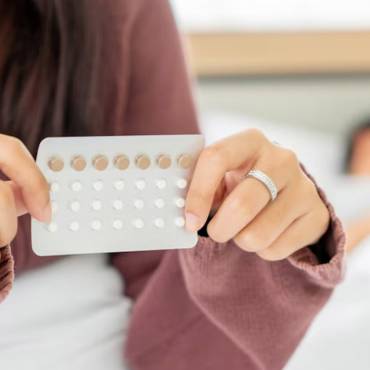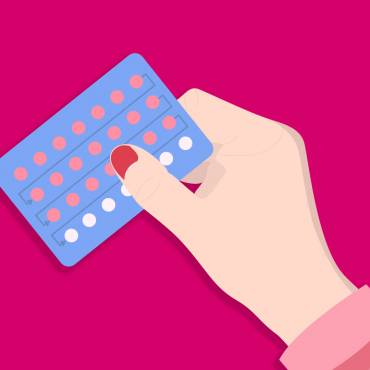Reports of the negative effects of hormonal contraceptives on mental health have received increased attention from users, contributing to concerns regarding these adverse effects. This article will assess the impact of hormonal contraceptives on mood in women of reproductive potential.
Millions of women across the world use hormonal birth control as an effective form of contraception. However, none of the contraceptive methods comes with a “side-effect-free” label. The one side effect that commonly causes treatment discontinuation is depression. Hormonal contraception is known to cause depression in some women. Several research studies analyzed nationwide health records and found a connection between mental health and birth control. Let’s dive into some of them and get the facts.
Effects of birth control on mental health
Can birth control cause mental issues? There is evidence that demonstrates the effect of estrogen and progesterone on brain function, which may be responsible for depression and negative mood changes in females receiving birth control pills. One of the common reasons behind the discontinuation of birth control pills is changes in mood and a significant increase in depressive symptoms. Currently, all birth control tablets may cause mental health issues, but the newer pills containing estradiol may be less likely to affect mood. The mode of action of oral contraceptives on mood influence remains controversial. Nonetheless, there is increasing evidence demonstrating a significant connection between taking birth control and mental health issues (depression).
Several research studies investigate the connection between mood and oral birth control use. Another research study found that current oral birth control users or recent users had higher depression rates as compared to non-users. Moreover, a research study that included more than one million female participants found an increased risk due to the first use of depression medicine and first diagnosis of depressive symptoms among those who use different kinds of birth control pills, with the highest incidence among adolescents. Whereas the use of medroxyprogesterone acetate, an injectable form of birth control, is known to cause greater depressive symptoms as compared to those in non-users. The association between taking an oral contraceptive tablet and depression depend on the amount and type of progestogen present in oral birth control.
Knowing the mental side effects of birth control, caution should be taken by women who have a personal or family history of depression. However, these may known to provide relief from depressive symptoms in those suffering from premenstrual dysphoric disease by stabilizing the continuous fluctuations in the production of hypothalamic-pituitary gonadal steroids. In this case, the regular use of an active birth control pill could induce an antidepressant effect.
Emerging research: nomegestrol acetate with 17 beta-estradiol
Currently, all available birth control pills influence a woman’s mood. Studies demonstrated that nomegestrol acetate (a synthetic progestin) with 17 beta-estradiol is better tolerated as compared to other contraceptive pills by women with mood disorders. In fact, women report a positive mood response after consuming nomegestrol acetate with 17 beta-estradiol compared to previously used birth control tablets. Also, those who develop depressive symptoms usually after consuming other birth control pills (particularly the older options) may better tolerate nomegestrol acetate with 17 beta-estradiol. The results are consistent with its successful clinical use for off-label treatment of mood disorders related to premenstrual dysphoric disease.
Advising the use of hormonal contraceptives
- The decision to prescribe hormonal birth control pills involves a discussion between a patient and a healthcare specialist to determine her needs. Factors such as a woman’s age, past contraceptive pill use and experience, general health, and reliability need to be considered during the discussion.
- The woman’s health should be prioritized in view of the connection between depression and certain contraceptives. The topic is often ignored, which unfortunately results in poor outcomes for many female users. Previous history of premenstrual depression or depression associated with previous birth control use should be carefully observed.
- Caution should be taken when using progestogen in women with current or past episodes of depression. However, in severe cases where estrogen-containing contraceptives are contraindicated, a low-dose progestogen IUD or barrier contraceptives may be considered to prevent unwanted pregnancy.
- Healthcare specialists must recognize the impact of hormones on mental health, and patients should be kept under close observation, thus promoting a good therapeutic relationship. Depression and weight gain are the major challenges that led to the change in contraceptive treatment. Outcomes are likely to improve with informed decisions, trying a particular birth control pill, and noting that a change may need to be made after about three months.
Verdict!
Better education and appropriate information are required regarding the mental side effects of birth control. Progestogen-only contraception is believed to have a greater tendency for depressive conditions in vulnerable women. More research is needed to identify why some females develop hormone contraceptive-related depression, while many females taking hormone birth control do not get any mental health issues.



